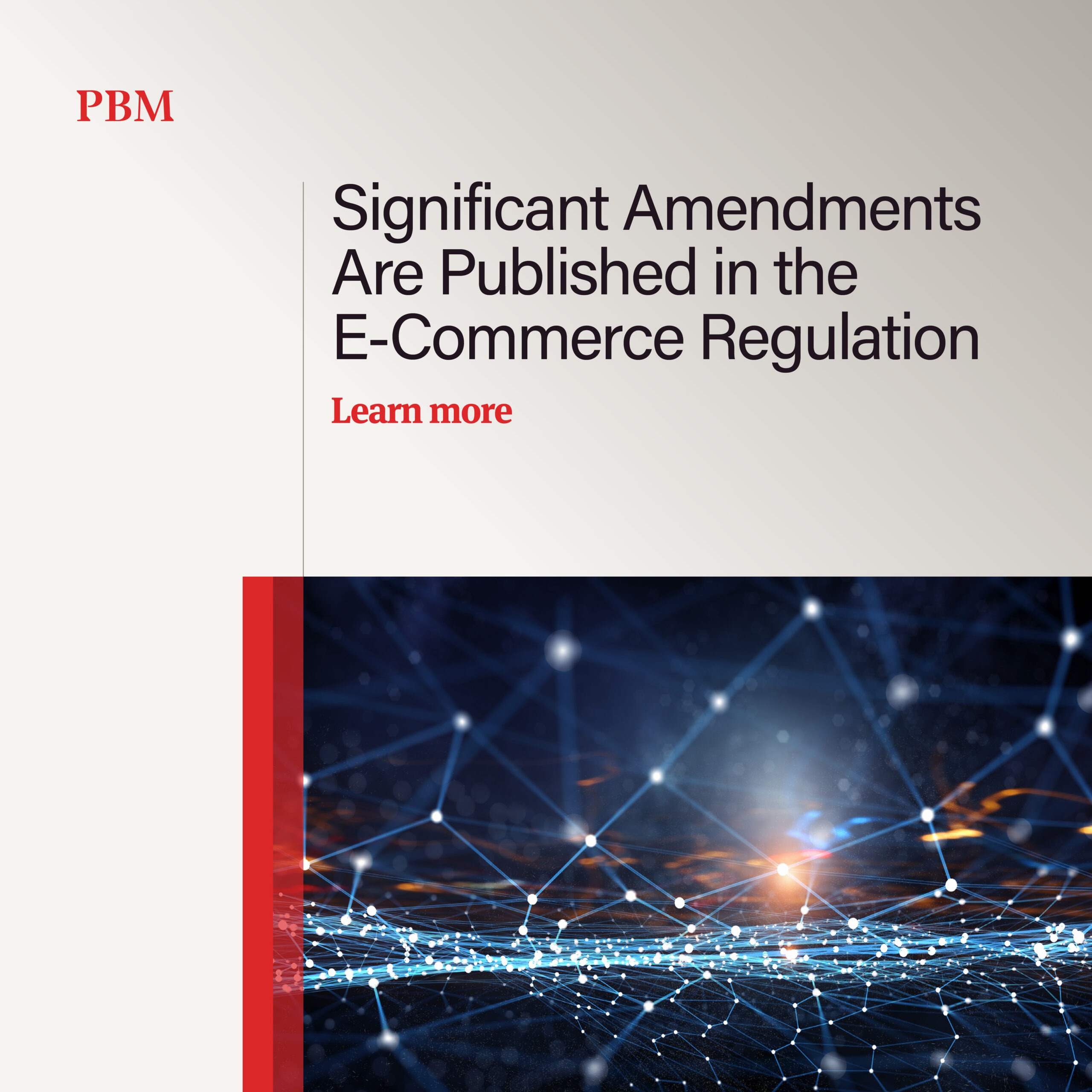Simulations for the On-site Inspections Conducted by the Competition Authority
March 11, 2025SGK’dan İşten Ayrılma Kodlarına İlişkin Önemli Düzenleme
March 14, 2025
Significant Amendments Are Published in the E-Commerce Regulation!
The amendments published in the Official Gazette dated March 8, 2025, and numbered 32835, Regulation on Amendments to the Regulation on Electronic Commerce Intermediary Service Providers and Electronic Commerce Service Providers (“Regulation”) introduced significant changes for the obligations of the Electronic Commerce Intermediary Service Providers (“ECIS”) and Electronic Commerce Service Providers (“ECSP”). These amendments have been implemented to ensure compliance with the revisions made on October 24, 2024, to Law No. 6563 on the Regulation of Electronic Commerce (“Law”).
The fundamental amendments made to the Regulation are as follows:
- The obligation for ECSP to display a Rem (registered electronic mail) address in the marketplaces allocated by ECIS has been removed.
- The names and surnames of individual sellers who are not merchants or tradesmen will not be shared on the marketplace; instead, it will be sufficient for these sellers to provide their Turkish ID number, email address, and phone number to ECIS.
- Amendments introduced in intermediary agreements concluded by ECIS will take immediate effect without a waiting period if they are in favor of ECSP.
- The mandatory three-month scheduling restriction for marketplaces has been lifted, and verification would now be sufficient for a year. However, if a seller does not list any product within a calendar year, the marketplace will not be required to conduct verification.
- ECIS cannot impose penalties on sellers without requesting an explanation, unless the marketplace imposes a penalty under the brokerage agreement without requesting an explanation from the seller.
- If violations related to the protection of business brand domain names are detected, the Ministry may impose administrative sanctions. Additionally, advertisers are required to set the keywords subject to complaints, as negative keywords with exact matches. The period for remedying the violation shall commence from the moment the notification is made, rather than from the date of service, pursuant to the amendment.
- The obligation for ECIS to provide technical means for Ministry personnel to view information within its internal communication system has been removed. Instead, it has been regulated that ECIS may transfer the data within one year from the end of the contract.
- The previous regulation limited the inclusion of sponsorship expenses in advertising budgets to a maximum of 25%. The new regulation increases this threshold to 50%. Additionally, an amount, up to 5%, of the advertising and discount budget allocated for refurbished products will not be included in the advertising budget calculations.
- Discounts granted due to natural disasters such as earthquakes, fires, and floods will not be considered part of ECIS ‘s discount budget. Similarly, discounts aimed at fostering the economic and social participation of disadvantaged groups will also be excluded from this budget.
- Where installment sales include deferred payment options for buyers, and the associated costs are borne by the marketplace, these costs will be included in the discount budget. The provisions governing the calculation of licensing fees stipulated in the Law have also been incorporated into the Regulation. Under the temporary provisions, for 2024, these amounts will be deducted at a rate of four times the net transaction volume of ECIS, while for 2025, they will be deducted at a rate of three times the net transaction volume. Additionally, it has been regulated that investment expenditures incurred in relation to the companies in which ECIS participates may be subject to a discount in terms of the license fee.
- The e-commerce business models eligible for classification as cross-border sales have been clearly defined. When calculating the total volume of cross-border sales, only final invoices or equivalent documents will be considered, excluding cancellations and refunds. Additionally, the burden of proof regarding the classification of transactions as cross-border sales will be on ECIS.
- ECIS must establish integration mechanisms with ECSP to facilitate the transmission of order details and the updating of stock information. However, this obligation will not apply to businesses operating in the food and beverage sector.


